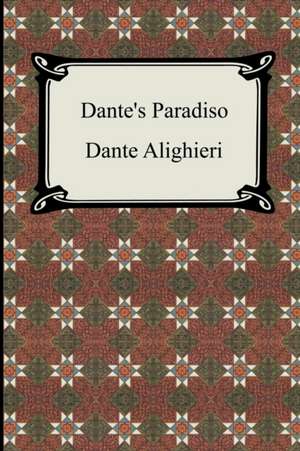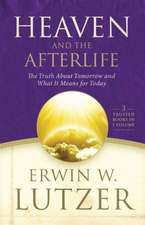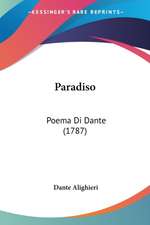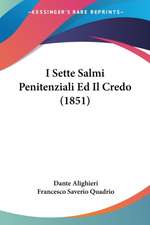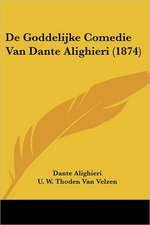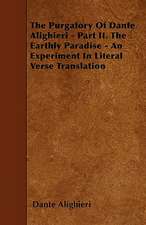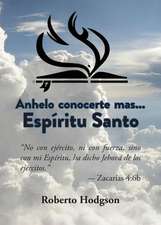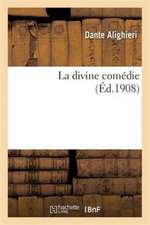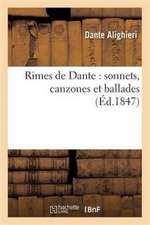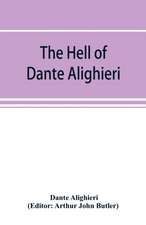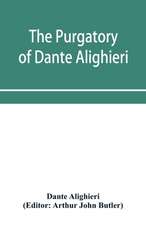Dante's Paradiso (the Divine Comedy, Volume 3, Paradise): Song Offerings
Autor Dante Alighierien Limba Engleză Paperback – 31 dec 2004
Preț: 53.54 lei
Nou
Puncte Express: 80
Preț estimativ în valută:
10.25€ • 10.96$ • 8.54£
10.25€ • 10.96$ • 8.54£
Carte tipărită la comandă
Livrare economică 17 aprilie-01 mai
Preluare comenzi: 021 569.72.76
Specificații
ISBN-13: 9781420926408
ISBN-10: 1420926403
Pagini: 96
Dimensiuni: 152 x 229 x 6 mm
Greutate: 0.15 kg
Editura: Digireads.com
Locul publicării:United States
ISBN-10: 1420926403
Pagini: 96
Dimensiuni: 152 x 229 x 6 mm
Greutate: 0.15 kg
Editura: Digireads.com
Locul publicării:United States
Notă biografică
Durante degli Alighieri (1265 - 1321), was a major Italian poet of the Late Middle Ages. His Divine Comedy, originally called Comedìa and later christened Divina by Boccaccio, is widely considered the greatest literary work composed in the Italian language and a masterpiece of world literature. In the late Middle Ages, the overwhelming majority of poetry was written in Latin and therefore accessible only to affluent and educated audiences. In De vulgari eloquentia (On Eloquence in the Vernacular), however, Dante defended use of the vernacular in literature. He himself would even write in the Tuscan dialect for works such as The New Life (1295) and the aforementioned Divine Comedy; this choice, although highly unorthodox, set a hugely important precedent that later Italian writers such as Petrarch and Boccaccio would follow. As a result, Dante played an instrumental role in establishing the national language of Italy.
